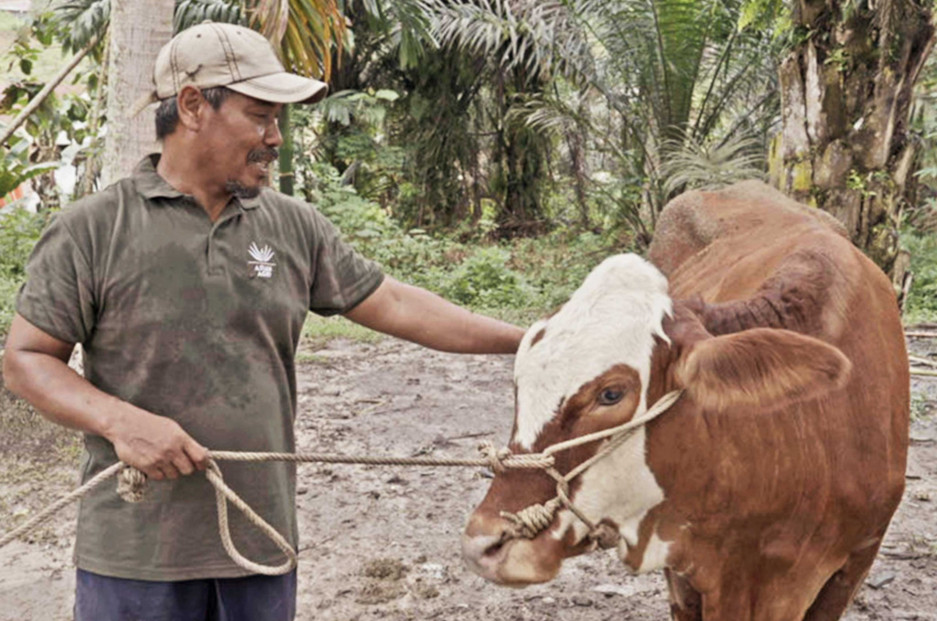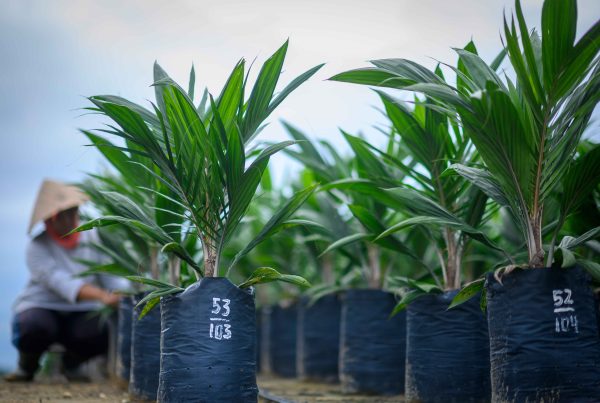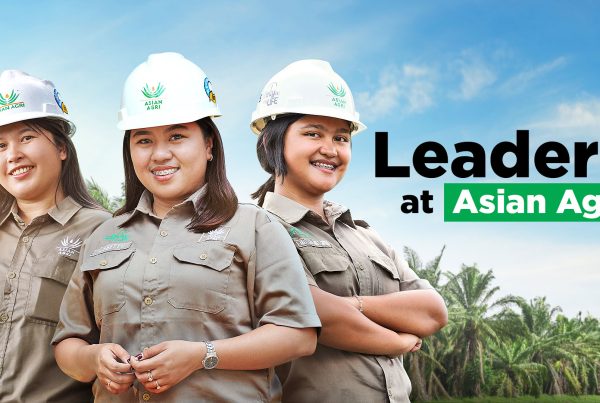When oil palm plantations reach the end of their productive life, smallholders face years of waiting for new palms to mature. Asian Agri’s replanting programmes provide critical support – including assisting in preparing land for replanting, financial assistance, and introducing alternative income sources– to sustain smallholders like Udiyono and their families through the transition.
“Everything has a lifespan. Sooner or later, replanting is inevitable,” says Udiyono, an oil palm smallholder who partners with Asian Agri.
For oil palm smallholders, the replanting process presents challenges, most importantly loss of income. The productive lifespan of an oil palm tree is around 25 years, after which yields decline and maintenance costs increase. The trees must be replaced, but the replanting process typically takes four to five years until the new oil palms start bearing fruit.
Udiyono, 50, needed a strategic plan to navigate this critical period for him and his family. Udiyono left his hometown of Lamongan, East Java and moved to Riau, where he entered the Indonesian government’s Plasma Transmigration Programme in 1991. He was granted two hectares of land to farm, as well as another half-hectare for housing and food crops. By 2021, Udiyono was serving as the Head of the Village Cooperative Unit/ Koperasi Unit Desa (KUD) Sumber Rejeki, overseeing 136 members, with a combined land area of approximately 300 hectares.
Asian Agri assists smallholders, facilitating access to the replanting funds of the government’s Palm Oil Fund Management Agency (BPDPKS), acting as a guarantor for bank loans, assisting with replanting program, and providing support for smallholders to explore additional income sources, such as cattle farming, to mitigate the financial impact of replanting.
“Asian Agri helped our cooperative on how to carry out land replanting, from the submission of land replanting documents in 2022, to disbursement of BPDPKS funds in August 2023, and then on to starting the replanting process at the end of September 2023,” says Udiyono.
In addition to providing administrative support for the replanting process, Asian Agri also assists smallholders in securing alternative sources of income during this period. Udiyono decided to venture into cattle farming. “Asian Agri representatives visited several smallholder cooperatives, assisting with the provision of cattle and offering guidance on how to care for them.”
Through diligent management and Asian Agri’s support, Udiyono’s cattle have thrived. His herd consists mostly of Bali cattle, a breed well-suited to tropical conditions because of their small size upon maturity, low feed requirements, high fertility and heat tolerance.
“Asian Agri provided me with a male calf and female calf as a start-up, equivalent to an IDR 20 million investment,” he says. “Now, I own seven cattle, six of them Bali Cattle. Female cattle can now sell for up to IDR 10 million each, and males go for IDR 17 to 20 million. Asian Agri has been very supportive in ensuring a steady income for my family during the replanting period.”




